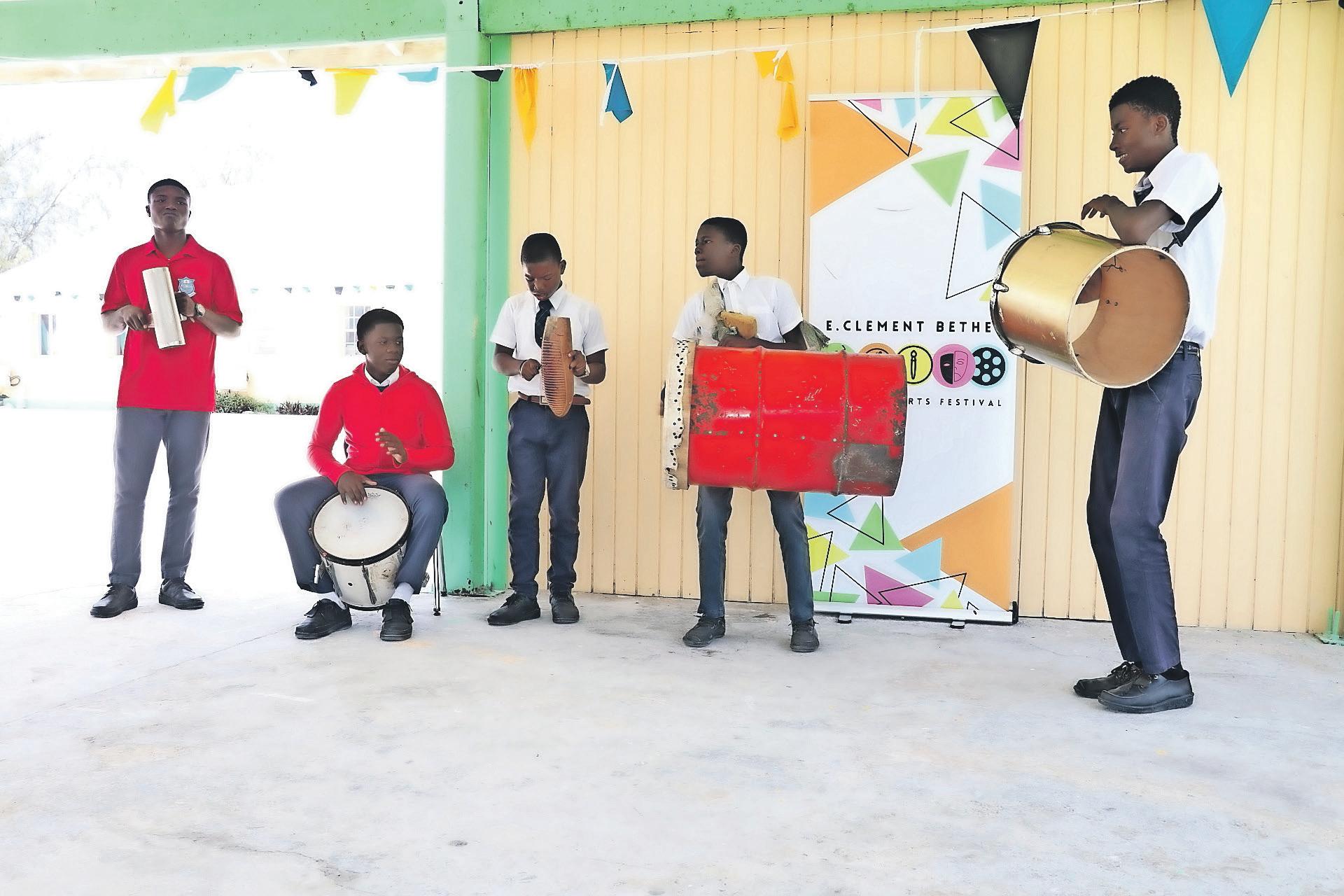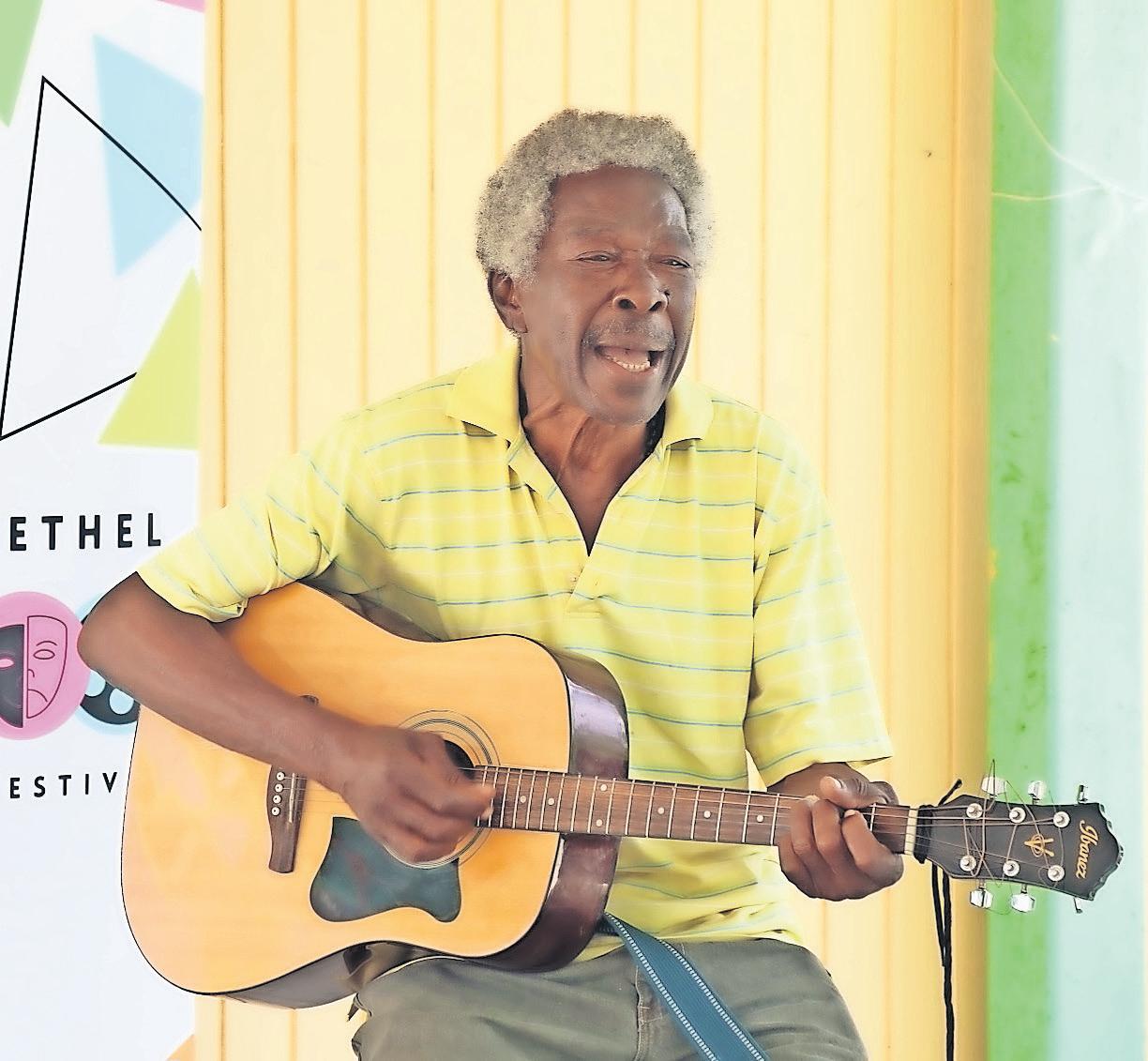













Opposition criticises Davis’ handling of US cocaine indictment
By RASHAD ROLLE Tribune News Editor
rrolle@tribunemedia.net
THE Free National Movement yesterday criticised Prime Minister Philip “Brave” Davis for what it called a dramatic shift in how he characterises a major US drug trafficking indictment implicating Bahamian law enforcement officials. The FNM questioned the government’s handling of the matter, particularly its failure to disclose any local investigative findings or disciplinary actions several months after the indictment’s release. The party said Mr Davis’ recent remarks raise concerns
By KEILE CAMPBELL
Tribune Staff Reporter
kcampbell@tribunemedia.net
THE owner of Bahama Grill is demanding public clarification from health authorities, accusing the Ministry of Health and Wellness of fuelling damaging speculation about his restaurant by issuing a vague statement amid viral social media claims and not providing an update. Eric Gibson Jr said a press release issued by the ministry on March 18 — acknowledging an investigation into a reported death allegedly linked to a foodborne illness — has led to public assumptions about his establishment without

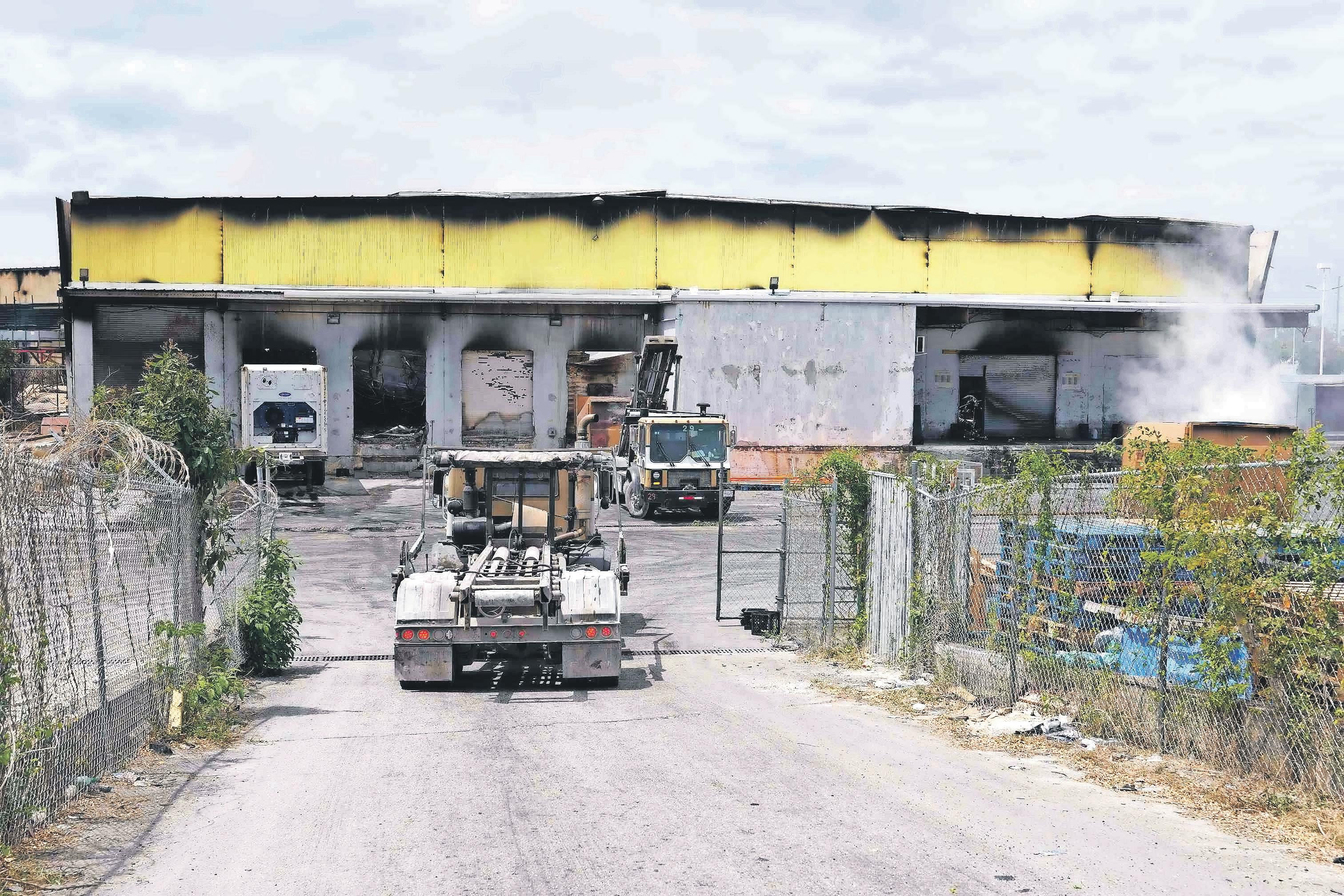
By RASHAD ROLLE Tribune News Editor rrolle@tribunemedia.net
AML Foods Limited confirmed that its Solomon’s Old Trail and Cost Right Nassau locations were completely destroyed in the
massive fire that engulfed parts of the Hyacinth Stuart Building and surrounding commercial properties on Monday.
The company said all staff and customers were safely evacuated before the fire spread, crediting the quick
action of its store teams and established emergency protocols. Three firefighters were injured during the response, two of whom required hospital care.
“We commend and
By JADE RUSSELL Tribune Staff Reporter jrussell@tribunemdia.net

ALTHOUGH SpaceX had hoped to resume booster landings in The Bahamas soon, the government said yesterday that no future landings would be permitted until the company completes a full environmental impact assessment (EIA) and
submits a post-launch report on the historic Falcon 9 landing that occurred in February.
Deputy Prime Minister Chester Cooper made the announcement yesterday.
An Environmental Baseline Statement (EBS) by BRON, a local consulting firm acting on behalf
By LEANDRA ROLLE Tribune Chief Reporter
A GRAND Bahama husband and wife were remanded to prison on Monday, accused of murdering their landlord when he came to collect rent earlier this month. Erris and Misty Pratt were formally charged before Senior Magistrate LaQuay Laing with the April 7 killing of Frerick Laing.

from page one
acknowledge the quick action and leadership of our store teams,” AML said in a statement. “We want to express our deepest gratitude to the firefighters and first responders who reacted swiftly and bravely to fight the devastating fire well into the night.”
The company wished the injured firefighters a full recovery and expressed appreciation for their professionalism under difficult conditions.
While the official cause of the fire remains under investigation, AML pushed back against early reports suggesting the blaze originated near the generator room at Solomon’s Old Trail.
“In fact, we confirm that as of this morning, the Solomon’s generator and electrical room, which were not affected by the fire, remain intact and operational,” the company said.
AML said it understands that construction work was taking place at the rear of the nearby Department of Labour building near a fuel tank shortly before the fire started. The company clarified that this work was not
affiliated with Solomon’s or Cost Right.
Despite the destruction of its retail sites, AML said it has activated its business continuity plan and is temporarily relocating affected staff to other store locations to maintain job security and reduce disruption.
“For decades, Solomon’s Old Trail and Cost Right Nassau have been privileged to serve the Bahamian community,” the statement said. “As a resilient team, we are already actively exploring the next steps, including plans to rebuild.”
The company confirmed its assets are fully insured and that it has started discussions with partners to support recovery efforts.
The fire, which broke out late Monday morning, disrupted operations for the major retailers, forced road closures, and affected the planned relocation of several government agencies to the Hyacinth Stuart Building. Emergency services responded with multiple fire units, and nearly 400 people were evacuated from the area.
The cause of the fire is still under investigation by relevant authorities.
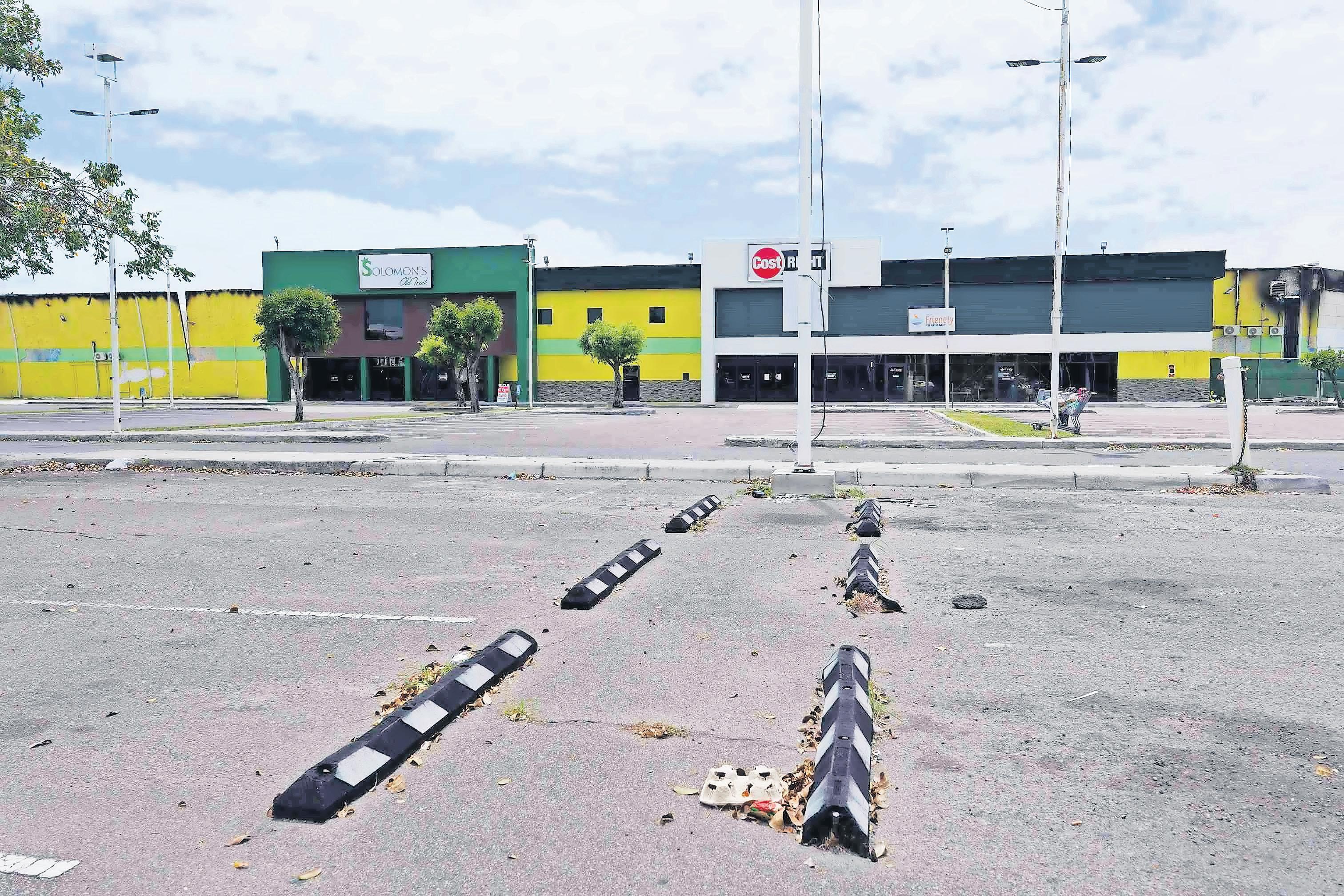
FIRE Services yesterday continued to ‘mop up’ smouldering areas after fire destroyed the Hyacinth Stuart Building, Solomon’s and Cost Right on Monday. Photos: Nikia Charlton
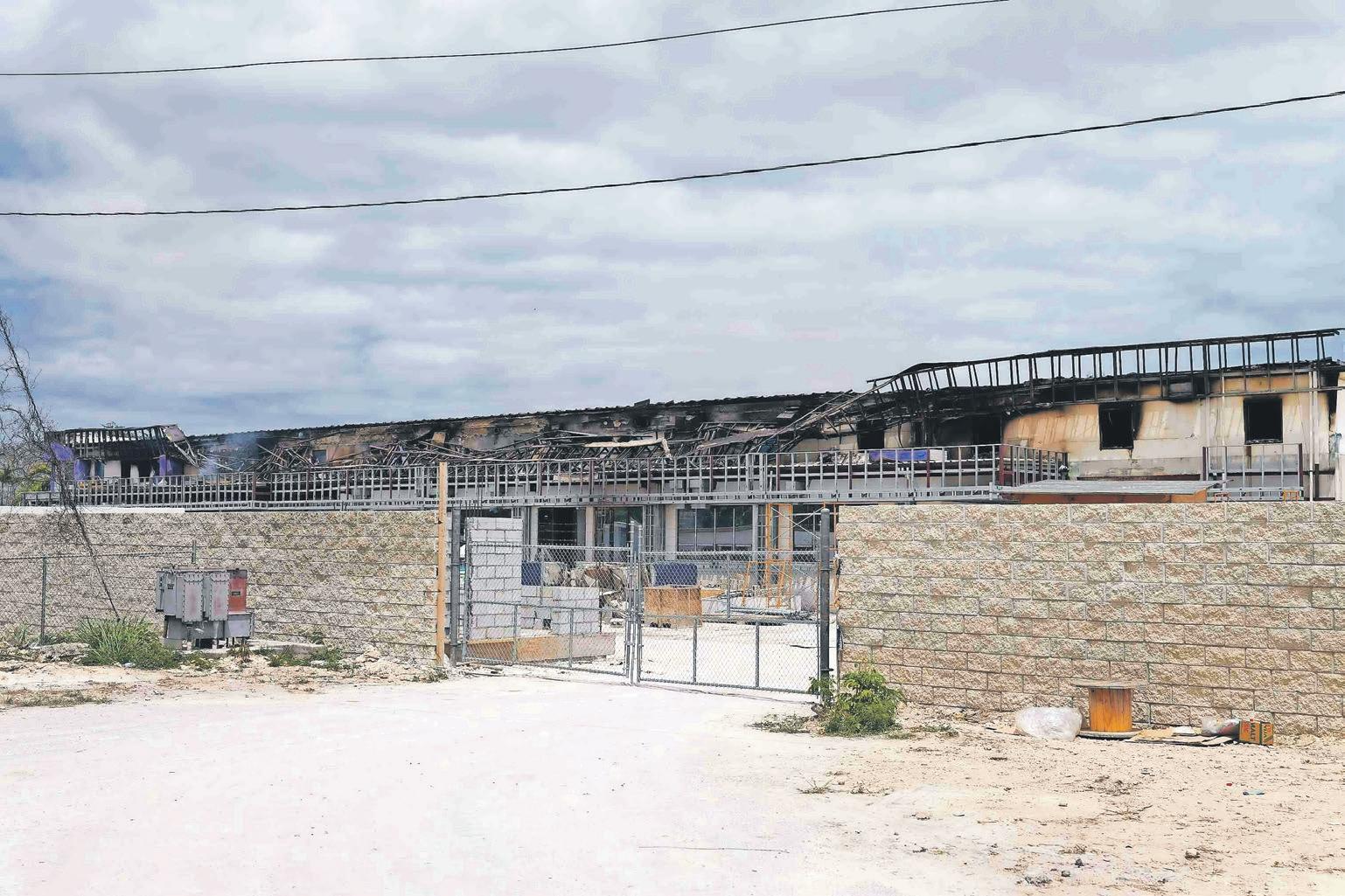
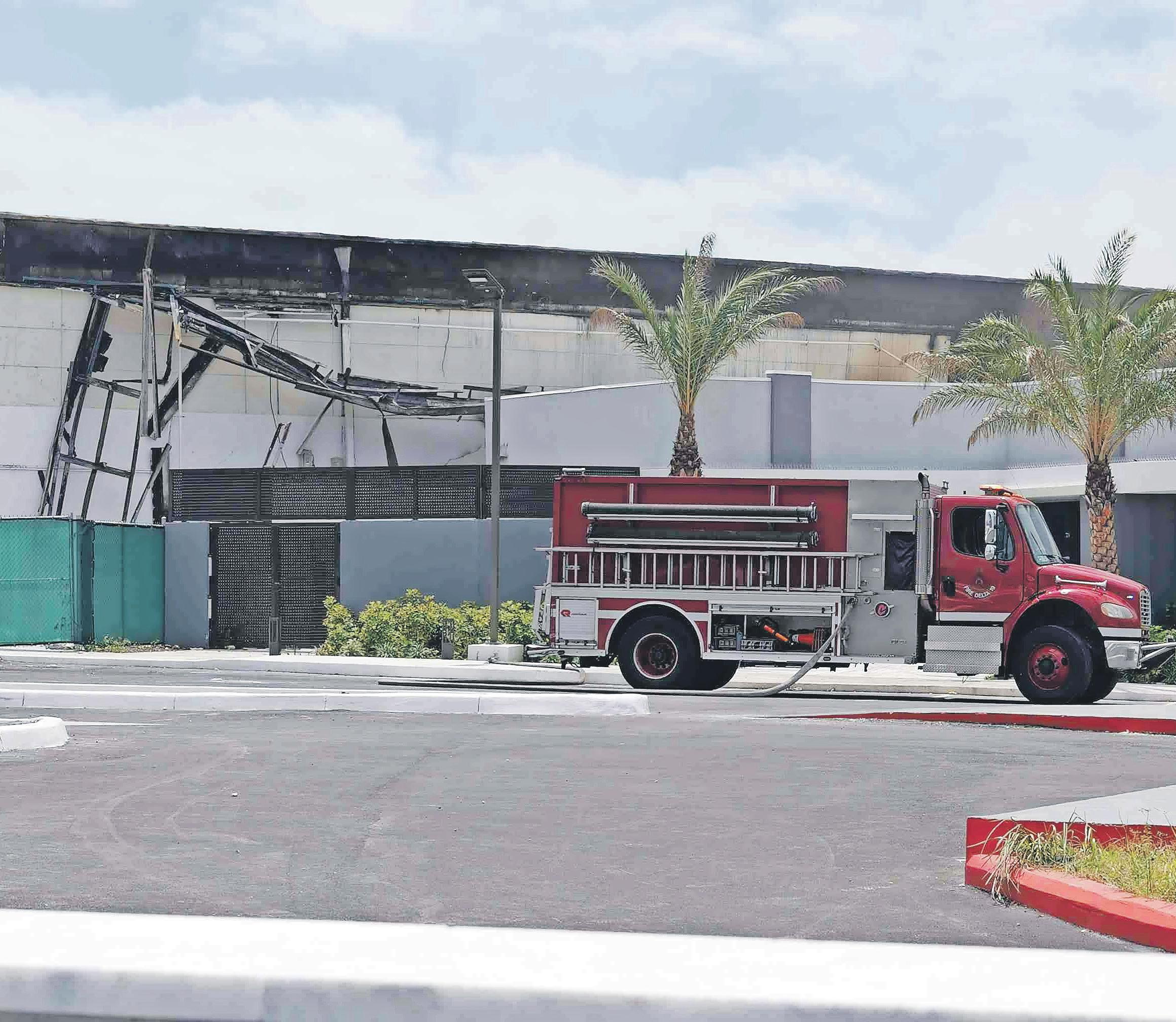



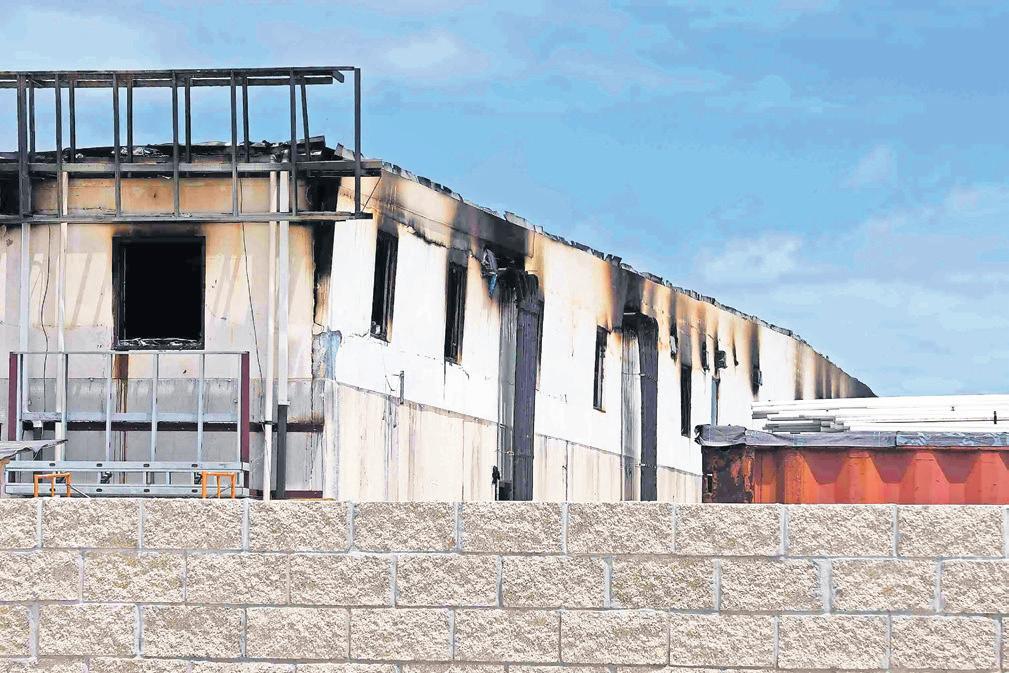

of SpaceX, was released in February. The statement concluded that booster landings were expected to have minimal impact on marine life, water quality, and local ecosystems.
However, environmentalists have argued that a comprehensive EIA would offer a deeper analysis of potential risks and outline mitigation measures.
Mr Cooper noted yesterday that the Falcon 9 programme boasts a 99 percent success rate, with more than 400 launches to date. Still, he acknowledged the company has experienced challenges.
Director of the Department of Environmental Planning and Protection (DEPP), Dr Rhianna Neely, said her department is still awaiting the post-launch report from SpaceX, which is expected before Easter.
“SpaceX is aware that no other re-entry exercises will be considered for DEPP’s clearance until the post launch report has been reviewed by the DEPP,” Dr Neely said.
She added that previous documents should be updated with new findings and lessons learned, and that a public consultation should be held.
She said officials want to ensure that the environment remained unchanged from its pre-launch state.
SpaceX’s vice president of launch, Kiko Dontchev, said BRON had submitted preliminary findings from the post-launch report, which Dr Neely had not seen. He said the report found no significant differences in environmental conditions before and after the landing. While there was a temporary increase in sound during the landing, no changes in marine life were observed. Water quality remained stable, and bird species present before the launch were still observed in the area.
“Our assessment is that there was no impact from the landing,” Mr Dontchev said.
He stressed that the findings were preliminary and that a full report would be made public.
Addressing calls from environmentalists for an EIA, Mr Dontchev said officials heard the their feedback.
He added that SpaceX hopes to complete the EIA by the end of summer and resume landings thereafter.
The economic impact of space tourism in The Bahamas has also come into focus. Mr Cooper said the February landing could have sparked a greater interest among students inspiring them to pursue STEM studies. SpaceX also announced its $1m donation to the University of The Bahamas in support of STEM education.


yesterday.
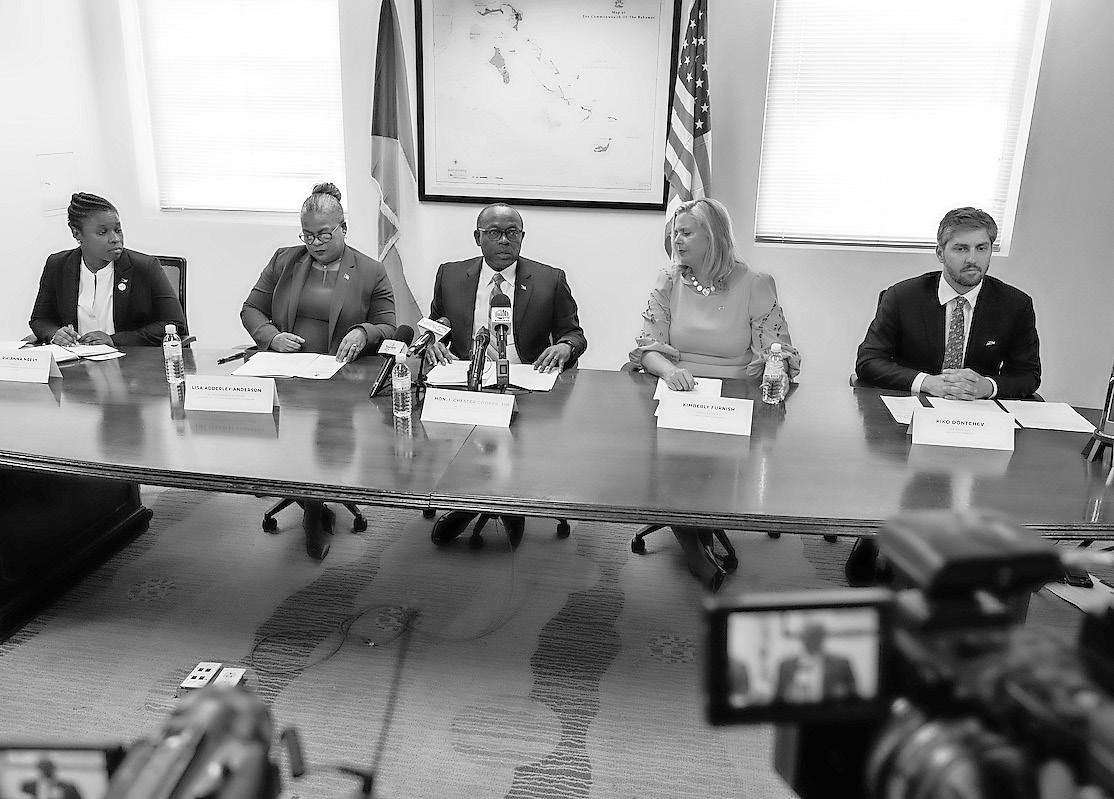
By JADE RUSSELL Tribune Staff Reporter
jrussell@tribunemedia.net
OFFICIALS of SpaceX were unable to confirm yesterday how much the company has spent on clean-up efforts in The Bahamas after its Starship rocket exploded in March, scattering around 400 pounds of debris near Ragged Island. The government has also revealed that three other aerospace and commercial launch companies are responsible for additional debris found on other Bahamian islands.
On March 6, a SpaceX Starship rocket launched from the company’s Starbase facility in Texas but broke apart mid-flight. It was intended to re-enter over the Indian Ocean, but lost communication and disintegrated about nine minutes into the flight. The event was visible from Florida, Cuba, The Bahamas, the Dominican Republic, and Turks and Caicos.
A press conference was held yesterday at the Ministry of Tourism, with SpaceX officials in attendance.
When asked for a specific figure on clean-up costs, SpaceX vice president of launch, Kiko Dontchev, said he could not provide an exact amount.
“I do not have a precise figure, to be frank, it’s a huge variable. Depending on how deep the debris is, how many the debris is, how we have to outreach, how we actually pay certain folks,” he said.
“Some of the individuals that helped us - we were paying with cash and cheque on the spot and things like that. But all I can say is we were committed, and we remain committed to making sure we pick up every piece of debris that we find.”
When asked whether the clean-up was expensive, Mr Dontchev said the cost is relative to the individual but emphasised that SpaceX is committed to using whatever resources are necessary to remove all debris.
Director of the Department of Environmental Planning and Protection (DEPP), Dr Rhianna Neely, said she was advised that no
A SpaceX recovery team arrived in The Bahamas on March 7 and worked with government officials to remove the debris. The team left two weeks later. According to the government, SpaceX committed to covering all costs associated with debris removal and environmental assessments.
heavy parts of the rocket were dropped into Bahamian waters. The debris mainly consisted of the rocket’s heat shields.
She added that since the SpaceX clean-up, debris has also been recovered on Cat Island, Abaco, and Eleuthera. However, there is currently no evidence linking SpaceX to the debris found on those islands.
None of the debris reported so far has been confirmed as hazardous. Dr Neely said some pieces appear to have been in the ocean for a long time, including debris that washed up on Cat Island, which is estimated to have been there since 2021.
She said the findings have been reported to the United Nations, which approved the export of debris from all islands except Eleuthera, where approval is still pending.
Deputy Prime Minister Chester Cooper revealed that three additional companies have been linked to debris found in The Bahamas. While the government is confident about the identities of the entities, Mr Cooper declined to name them, stating that officials would release the information once the entities are fully verified.
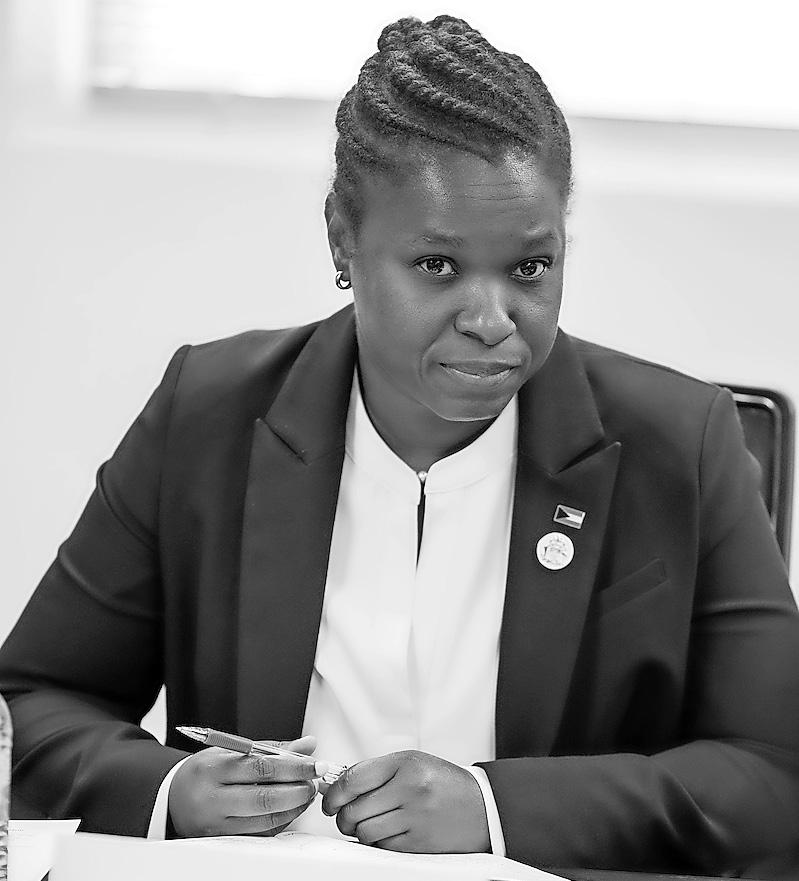
any direct allegation or official communication.
“I think it’s very irresponsible of the ministry to make a loose statement like that, given the circumstances, what was going on with social media comments, and not be extremely clear as to what was going on,” Mr Gibson said.
The ministry’s statement, which followed the circulation of claims related to Bahama Grill, confirmed only that officials were “aware of reports circulating on social media” and had “commenced an investigation regarding the reported case”. No specific restaurant was named.
Mr Gibson said no ministry official has contacted Bahama Grill regarding any complaints, illnesses, or deaths. “Bahama Grill has not been advised by any ministry. Nobody came to Bahama Grill to say they got sick. Nobody came to Bahama Grill to say somebody died,” he said.
Calling the unubstantiated allegations a “malicious attack” on his business, Mr Gibson launched a $5,000 reward for credible information identifying those behind what he claims are false statements. He said his legal team is reviewing tips received and has shared them with police. “It’s incumbent upon them to come back and say what those test results were,” he said, referring to the Ministry of Health. “People’s minds will suggest positive or negative. What you need to be doing is pressing the Ministry to get a final from them.”
The release itself noted that clinical matters fall under the Ministry of Health and Wellness, while environmental and sanitation matters are handled by the Department of Environmental Health Services under the Ministry of Environmental Health and Natural Resources. Ministry of Health officials declined to comment on the status of the investigation yesterday.
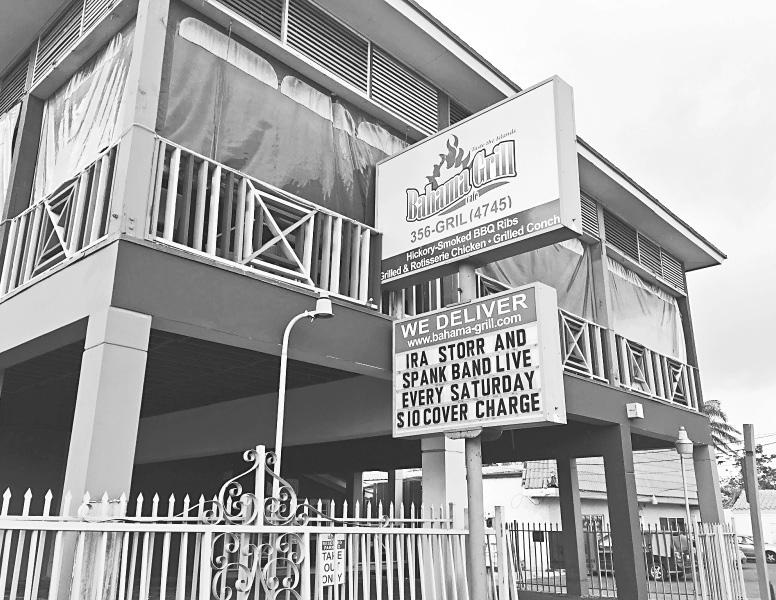
By RASHAD ROLLE Tribune News Editor rrolle@tribunemedia.net
A SUPREME Court judge has ruled in favour of a group of directors in a long-running dispute over control of the Lucayan Towers South Condominium Association, ordering rivals who usurped authority of the complex to repay over $112,000 in maintenance funds used for personal legal fees and other unauthorised expenses.
Justice Loren Klein also dismissed a companion lawsuit that the rival group filed in 2013 to legitimise their authority, calling their claim “stillborn” and affirming earlier rulings that found their election invalid. The ruling, delivered recently, brings an emphatic close to more than a decade of contentious litigation between two boards that each claimed lawful control over the Freeport-based condominium association.
The dispute dates back to January 2013, when a group of people led by Douglas Prudden convened what they styled as an Extraordinary Meeting of the association and declared themselves the new board of directors. The judge noted that several members of this group were not unit owners and, therefore, ineligible to serve on the board under the governing documents. Soon after asserting control, the group

instructed unit owners to redirect their maintenance payments from the association’s official bank account to the escrow account of their attorney, Tiffany Dennison. They also attempted to gain control of the association’s bank accounts by threatening legal action against the bank and the previous board. The judge found these actions sowed confusion and mistrust among residents.
In his decision, Justice Klein upheld previous findings by former Chief Justice Sir Michael Barnett and the Court of Appeal that the Prudden-led board was never validly elected and had no lawful authority to manage the affairs of the association.
“We now know, as found by the Court of Appeal, that they were not properly elected and therefore had no authority to do any of the acts they did in this regard,” he wrote.
The judge found that the unauthorised board used $70,646 in diverted funds to pay personal legal expenses between 2013 and 2014. He also accepted evidence that an additional $41,453 was disbursed for the same purpose after the group
was temporarily given leave to manage the property in 2015 while legal appeals were pending. Justice Klein ordered the group, including attorney Ms Dennison, to repay the full amount, concluding there was no viable defence to the claim. He also granted orders for a full accounting of the funds collected and spent, and of unit sales that occurred while the group exercised control of the association. Evidence laid before the court showed that the group opened new bank accounts without court approval, continued to collect maintenance fees, and authorised the sale of multiple units, with the proceeds unaccounted for by the time the original board regained control.
In addition to the financial mismanagement, the ruling outlined a history of aggressive tactics by the unauthorised board, including removing official notices posted by the legitimate directors, changing locks on management offices, and distributing statements misrepresenting their authority. Although the group claimed they believed they were acting with majority support from unit owners, the court found that they had no legal basis for their actions and failed to meet the requirements for valid election under the condominium’s by-laws. The judge declined to issue permanent
injunctions barring the group from future involvement in the association, saying there was no indication of recent attempts to interfere. However, he left the door open for the rightful board to seek such relief again if necessary.
Justice Klein described the decade-long legal saga as a regrettable reflection on the judicial process, noting that the original claims were filed in 2013 and only now resolved in 2025.
“It is regrettable and a poor reflection of our judicial system that it just now falls to me in 2025 to cut the Gordian knot of this protracted litigation,” he wrote.
He granted costs to the plaintiffs and directed that a formal order be drafted to give effect to the court’s findings.
The ruling is expected to bring some closure to residents of Lucayan Towers South, who have endured years of uncertainty over their property management. Still, the judge acknowledged that disputes over past unit sales and further accounting could result in additional legal proceedings.
Efforts to reach representatives of the Prudden group and attorney Tiffany Dennison were unsuccessful. Only one group member attended the most recent hearings, and neither Dennison nor the other named defendants filed a defence to the claims.
Police allege the incident occurred as Mr Laing attempted to collect rent in the Ludford Drive area. An argument reportedly broke out, during which he was fatally wounded. The accused were not required to enter a plea. They were remanded to
the Bahamas Department of Correctional Services until June 27, when they are expected to be served with a voluntary bill of indictment.

about whether the government still intends to pursue accountability as forcefully as initially promised
The party highlighted Mr Davis’ remark on Monday that the operation “appeared to be an entrapment”, contrasting this with his earlier pledge to take decisive action. “The tree will be shaken until every bad apple falls,” he declared in the House of Assembly last year after the indictment was unsealed by the US Southern District of New York.
At the time, Mr Davis called the allegations “unforgivable” and vowed that they “will not go unanswered”. The administration rolled out new oversight legislation to strengthen accountability within the country’s law enforcement agencies, with Mr Davis saying: “All options are on the table to rebuild trust and restore confidence.”
But on Monday, when asked about the lack of updates from US officials regarding an unnamed politician referenced in the indictment, Mr Davis
struck a different tone. The indictment alleges that Bahamian law enforcement officers accepted bribes, offered to facilitate the movement of cocaine through Lynden Pindling International Airport, and discussed using government or military aircraft to transport cash from Florida in exchange for commissions. It also claims that a high-ranking politician was expected to authorise law enforcement support in exchange for a $2m bribe.
Among those charged are Chief Superintendent Elvis Curtis and former Defence Force Chief Petty Officer Darren Roker, who were arrested in the United States in late 2023. Recent court filings suggest plea negotiations are underway. Despite the gravity of the allegations, Mr Davis confirmed this week that the government has yet to receive a response to its diplomatic note seeking details about the politician referenced in the indictment.
In response to the FNM’s criticism, the Office of the Prime Minister defended the government’s handling
of the matter, saying it had treated the US indictment “with the utmost seriousness and urgency” from the outset.
The OPM highlighted several actions taken since the indictment was unsealed, including the resignation of the Police Commissioner, the appointment of new leadership with a reform mandate, and the passage of whistleblower protections and legislation establishing an independent investigations commission.
It said that within 24 hours of learning of the indictment, the Ministry of Foreign Affairs formally requested assistance from the US Embassy to help identify the unnamed senior Bahamian official referenced in court documents. US officials, the OPM noted, advised that they do not comment on ongoing investigations or judicial matters.
Addressing Mr Davis’ recent remarks that the case appeared to involve entrapment, the OPM said this was “not a matter in controversy” and is “clear from the text of the indictment itself.”
By LYNAIRE MUNNINGS Tribune Staff Reporter
lmunnings@tribunemedia.net
BAHAMIANS travelling to the United States should brace for heightened border scrutiny, including potential searches of personal electronic devices, according to a new advisory from the Ministry of Foreign Affairs.

The advisory warns that US Customs and Border Protection (CBP) officers are authorised to inspect mobile phones, laptops, and other electronic devices without a warrant. While travellers are not legally required to unlock their devices or provide passwords, refusal may lead to prolonged questioning, confiscation of devices, or denial of entry. Travellers are encouraged to remain calm if refused entry and to contact the nearest Bahamian embassy or consulate for assistance.
Additional cautions include awareness of crime risks in tourist areas, the high cost of medical care in the US, and the need to declare all food, plant, and animal products to avoid fines. The ministry emphasised the importance of complying with US entry requirements and being prepared for potential inspections to ensure a smooth travel experience. The advisory echoes a similar warning issued by Canada earlier this month. The Canadian government updated its travel advisory to caution
that US border agents are authorised to search mobile phones, laptops, and tablets without providing a reason. Travellers may be asked to unlock their devices or provide passwords, and refusal could result in the device being seized, delayed travel, or denial of entry for non-US citizens.
These warnings come as US Customs and Border Protection (CBP) reported conducting 47,047 electronic device searches during the 2024 fiscal year. Though that figure represents less than 0.01 percent of all international arrivals, rights groups have raised concerns about the expanding scope of such searches and the lack of transparency around how personal data is handled.
By LYNAIRE MUNNINGS
Tribune Staff Reporter
lmunnings@tribunemedia.net
POLICE Commissioner Shanta Knowles and her executive team met with Securities Commission
Chairman Justice K Neville Adderley and Executive Director Christina Rolle during a courtesy call but officials did not take questions from the invited members of the press. Justice Adderley called the meeting “a significant and historic step forward,” saying: “The commission and the police force must cooperate to ensure the commission maintains good standing globally. We are tied by law and the mandates we must fulfil. If the commission fails in these areas, it could affect whether the country is blacklisted.”
According to recent reports, the commission has been investigating Creators Alliance, an unlicensed investment scheme it described as having “the hallmarks of a pyramid scheme.” Ms Rolle previously told The Tribune Business that the commission has been probing the operation for the past two weeks in collaboration with the police. She said the findings so far suggest the scheme is likely unlawful. Although no formal complaints have been received, investigators have contacted people believed to be involved. She urged members of the public to come forward with information to help identify those behind the operation. The commission believes Creators Alliance is a California-based multi-level scheme that compensates
users for recruiting others and promised daily earnings for watching videos, along with full investment repayment after six to seven months.
Though its presence appears to have been strongest in Grand Bahama, the scheme is believed to have reached individuals across The Bahamas and the wider Caribbean, including St Lucia, St Vincent and the Grenadines, and Puerto Rico.
Creators Alliance is not registered or licensed in The Bahamas, and the Commission has warned its activities likely breach the Financial and Corporate Service Providers Act, 2020. While representatives of the scheme claim recent disruptions were due to a system upgrade, the commission continues to advise caution.

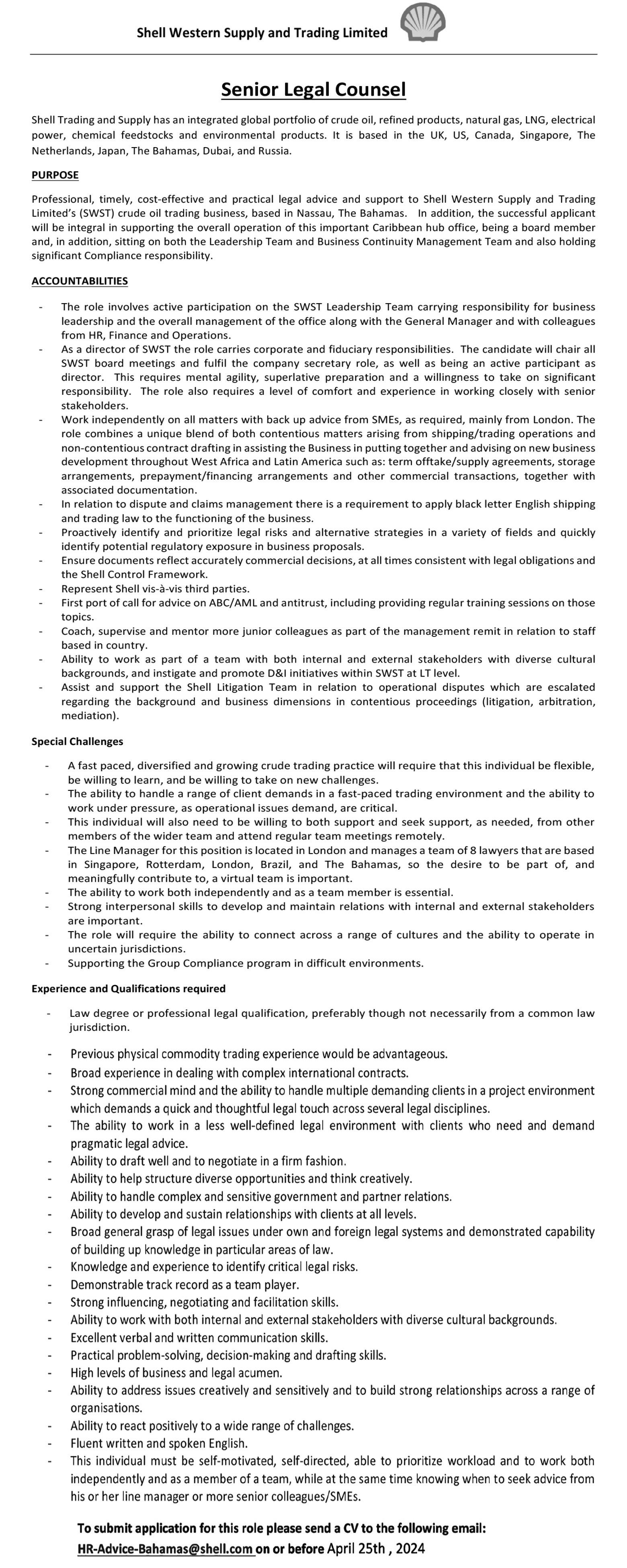
By LEANDRA ROLLE Tribune Chief Reporter lrolle@tribunemedia.net
FIREFIGHTERS responded to separate bush fires in Eleuthera and Abaco yesterday, with police confirming that both blazes were contained and posed no threat to homes or businesses.
In Rock Sound, Eleuthera, officers were alerted to a fire shortly before 2pm in an area known locally as White Road. Superintendent Franklyn Neely, head of the Eleuthera Division, said police called in the Men of Faith volunteer firefighting team, who helped bring the blaze under control. He said the fire was extinguished before it could spread further and that no properties were at risk.
Authorities suspect the
fire may have been sparked by nearby farming activity involving slash-and-burn techniques, though investigations are still underway to determine the exact cause. In Abaco, a large bush fire broke out north of Treasure Cay on Monday and continued into Tuesday. Firefighters from the Treasure Cay Fire Department worked to contain the flames. Chief Superintendent Michael Thurston, officer in charge of the Abaco Division, said the cause of the fire had not been determined but confirmed that it had been contained as of press time. He described the affected area as a wide expanse of bushland and said there were no active threats to the Treasure Cay airport, businesses, or nearby communities, including
Blackwood. However, he warned that smoke had significantly reduced visibility along the SC Bootle Highway and urged drivers to use caution.
The warning followed reports of a three-car crash on the highway on Monday, which some witnesses attributed to smoke from the fire. CSP Thurston confirmed the incident but said the cause remained under investigation. No injuries were reported.
The fires come amid a spate of recent blazes nationwide. On Monday, a massive fire tore through the Hyacinth Stuart Building and nearby commercial properties in New Providence, forcing evacuations, disrupting government operations, and destroying AML’s Solomon’s and Cost Right stores.

By PAVEL BAILEY Tribune Staff Reporter pbailey@tribunemedia.net
A MAN with a pending rape charge was denied bail for an armed robbery he allegedly committed while on release awaiting trial last year.
Gregory “Boyo” Davis, Jr, also known as Gregory Sweeting, 33, applied for bail before Justice Neil Braithwaite on an armed robbery charge. Davis and an accomplice are accused of robbing
Tierra Higgs at gunpoint on July 11, 2024. The pair allegedly stole her silver coloured 2013 Nissan March, valued at $6,700, and her black Anabelle purse, which contained $41 in cash.
Prosecutors said Ms Higgs was operating a ride-share service for the suspects when she heard a bullet chamber from the backseat, after which she was robbed at gunpoint. At the time of the alleged offence, Davis was on release on a rape
charge.
He is accused of raping a 39-year-old woman at his residence in the Coconut Grove area around 2am on September 2, 2023. Police allege Davis struck the woman in the face as she responded to a welfare check call, then proceeded to sexually assault her. In his most recent bail application, Davis maintained his innocence and claimed he was not identified in the armed robbery. He also described himself as a hardworking young
By PAVEL BAILEY Tribune Staff Reporter pbailey@tribunemedia.net
A MAN was sent to prison after being accused of setting fire to the old Central Police Station Enquiries Department last week.
Cecil Edward Roberts III was arraigned before Assistant Chief Magistrate Carolyn Vogt-Evans on charges of arson and damage by fire. The defendant appeared coherent during his arraignment. Prosecutors allege Roberts intentionally set fire to a two-storey, yellowtrimmed white stone building belonging to the government on April 9. The fire reportedly caused $679.72 worth of damage.
Roberts pleaded not guilty to the charges.
Assistant Superintendent of Police S Coakley, who served as the prosecutor, objected to bail, noting that the accused had no fixed address.
Roberts was sent to the Bahamas Department of Correctional Services and is expected to return to court on May 22 for further bail consideration.
By PAVEL BAILEY Tribune Staff Reporter pbailey@tribunemedia.net
A MAN was sentenced to one year in prison after admitting to breaking into a home in Tropical Gardens last month.
Devon Rigby, 23, was arraigned before Senior
Magistrate Kendra KellyBurrows on a charge of housebreaking. Prosecutors said Rigby and an accomplice broke into the home of Lovely Danny on March 31 intending to steal. Rigby pleaded guilty and accepted the facts presented by the prosecution.
He was sentenced to one year at the Bahamas Department of Correctional Services.
Before being remanded, he was informed of his right to appeal the sentence within seven days.
Sergeant Vernon Pyfrom served as the prosecutor.
We are seeking a highly organized and detail-oriented Office Assistant with logistics experience to join our team. This role offers a unique opportunity to support both administrative and logistics operations, contributing to the overall success of the company.
Required Skills & Qualifications:
• Excellent organizational and time management skills.
• Proficiency in Microsoft Office Suite and QuickBooks.
• Experience with inventory management and logistics software.
• Ability to work independently and collaboratively within a team.
• Strong problem-solving skills and ability to provide remedial support.
• College Graduate or equivalent; prior experience in a similar role is a plus.
How to Apply:
If you’re interested in joining our team, please submit your
man who does not pose a flight risk and promised to stay out of trouble. He said he did not know the complainant or any witnesses and would not interfere with them.
Jacklyn Burrows, representing the Office of the Director of Public Prosecutions, objected to bail. She said the stolen vehicle was found in Davis’s possession two days after the incident and that the complainant identified him in a police lineup.
Ms Burrows also cited
Davis’s pending rape charge and his criminal record, which includes 20 convictions dating back to 2010 for stealing, housebreaking or shopbreaking, bail violations, and sacrilege.
Given these facts, Ms Burrows argued that Davis posed both a flight risk and a danger to public safety. Justice Braithwaite found the evidence against Davis to be cogent. He also ruled that Davis was not of good character due to his extensive
criminal history and noted the alleged armed robbery occurred while he was on release for a rape allegation. Justice Braithwaite said the armed robbery charge reflected an escalation from Davis’s previous stealing offences and determined that no conditions could be imposed to prevent him from reoffending while on bail. He also found that the risk of absconding was higher due to the likelihood of a stiffer sentence if convicted, given his record.
By PAVEL BAILEY Tribune Staff Reporter pbailey@tribunemedia.net
THREE employees of the Passport Office allegedly helped three men obtain forged Bahamian passports last October. Lavarcia Gaitor, 27, Latoya McCartney, 43, and Tia Hall, 41, were arraigned before Senior Magistrate Kendra KellyBurrows. Gaitor faced one count of abetment to possession of a forged
document. McCartney was charged with three counts, and Hall with two.
Prosecutors allege that on October 17, 2024, Gaitor and McCartney abetted Chedlord Henrisier in possessing a forged Bahamian passport in the name of Michael Johnson. McCartney and Hall are further accused of helping John Berry Henrisier obtain a Bahamian passport in the name of Brown Francois on the same date. The pair
allegedly also assisted Roberde Jacques in obtaining a Bahamian passport in the name of James Francois on October 18, 2024. All three defendants pleaded not guilty. They were each granted $4,000 bail with one or two sureties and must sign in regularly at their local police station. Their trial is set to begin on August 19. Inspector Wilkinson served as the prosecutor.
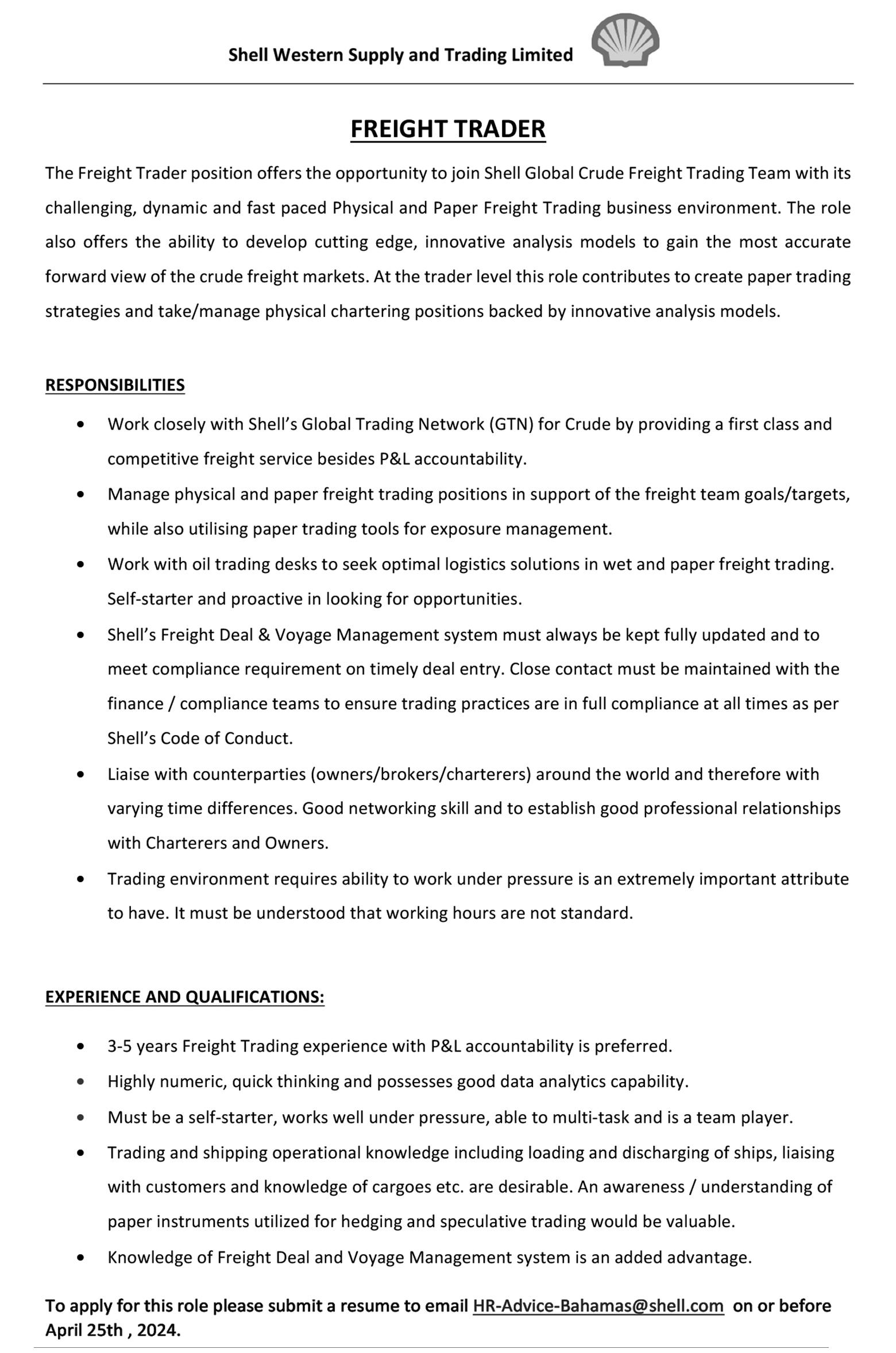
APRIL is Sexual Assault Awareness
Month and, while people are generally aware that sexual assault exists, there is a significant amount of work to be done to ensure that everyone understands what constitutes sexual violence. Rape is considered to be the most extreme form of sexual violence, yet even rape is not fully understood and people continue to talk about “gray areas”, blame survivors and victims, and point to strange, ineffective “tips” for avoiding being raped rather than teaching the difference between sex and rape.
Comprehensive sexuality education has long been a demand made by Equality Bahamas along with women’s rights advocates and child safety advocates. Many try to avoid even acknowledging this demand due to the discomfort they feel when the topic of sex is raised.
A troubling number of adults who engage in sexual activity on a regular basis or who have, at some point in their lives, done so are uncomfortable with the word “sex” and both refuse to talk about it with young people and actively try to prevent others from talking to them about it. This leaves young people to seek information elsewhere, often leading to exposure to myths, or representations, and practices that put them at risk.
The fact is that young people will encounter sexual material and sexual behaviour, and young people will want to explore their sexuality, with or without the necessary information. They are capable of finding ways to explore sex and sexuality, regardless of the supervision they are under. In fact, because they are generally not educated about sex and sexual violence, young people can be at higher risk for sexual abuse by adults entrusted with their care. If people do not know what sex is, they will not

By Alicia Wallace
be able to distinguish it from rape. If people are not taught what consent is and is not, and that they have the right to give or withhold consent, they can be violated without knowing it. If people are taught to ignore their own instincts and feelings, instead prioritising others’, they learn not to trust themselves and to acquiesce to others and the demands of others. Parents and guardians need to teach their children about their bodies. They need to be able to identify their body parts by proper names. They need to have no shame around the language

related to their bodies and their feelings. Parents and guardians need to acknowledge, respect, and affirm the feelings of their children. This is more important than the feelings and thoughts of other adults in their lives. This is more important than what many consider to be polite behaviour. If a child does not want to sit on the lap of an adult, that must be respected. If a child is uncomfortable with certain people, they should not be left alone with those people. Children, like adults, have instincts. In many cases, their instincts are better than
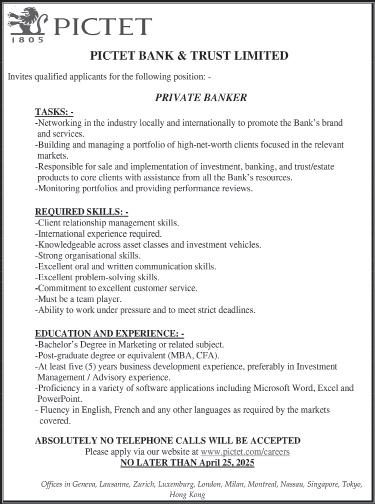
those of adults who have been taught not to trust them, to ignore them, and even to turn them off. Children need to know that their feelings matter and their discomfort is not something they have to ignore. They are not responsible for the feelings of adults. If an adult is sad because a child does not want to hug or kiss them, that problem must remain the problem of the adult and the adult only.
It is not unusual for parents and guardians to want to ignore the sexuality of their growing children, even as they watch the changes that come with adolescence. Many delude themselves into thinking that not talking about it means it is not happening and will not happen.
The truth is that parents and guardians have a great opportunity and responsibility to give accurate, age-appropriate information to their children. When they do not do this, children find ways to fill the gaps. This leads to children “teaching” children, exposure to (unethical) pornography (often resulting in miseducation), seeking “information” from other adults who should not be trusted, and unsafe experimentation. As children spend most of their waking hours in school and schools are built for education and socialisation, it is reasonable to expect sexuality education to be included in the curriculum. Health, science, and
biology classes teach the basics of the reproductive system, but do not delve into the social aspects of puberty, hormonal changes, dating, and sex. These topics are unfortunately and incorrectly considered inappropriate or even taboo, yet the youth experiences are not delayed or prevented by lack of information and preparation. Young people need to know how to navigate the world, how to respectfully, safely engage with one another, and how to recognise predatory and abusive behaviour in others, including people they are taught to respect and trust. Sexual violence can only be understood when sex is understood. Everyone—including young people—needs to know that consent is a requirement for sex and any other activity related to the body. Knowing this is critical to building the ability to say “no”, “stop”, “I don’t want to do this”, and other words and phrases that clearly communicate unwillingness to continue. Everyone needs to know that sex is supposed to be pleasurable for all parties involved. Knowing this is critical to building the confidence to advocate for one’s self and say when something does not feel good and should not happen. Understanding consent and pleasure as foundational to sex goes a long way in equipping young people to recognise when someone is preying on, forcing, manipulating, or harming them. Young people need to know not only that “no means no”, but that “only yes means yes”. People of all genders must understand that enthusiastic participation is a requirement, and it is not appropriate to beg or seek to convince anyone to participate in sexual activity. That does not meet the requirement for consent which must be freely given for any activity. Everyone needs to know that consent can be withdrawn at any time and the withdrawal of consent means that the activity must stop. Comprehensive sexuality education includes information on national law, statistics, and trends. Young people need to know that there are adults who prey on young people, expecting them to be ill-equipped to assess risk, understand the law and its consequences, and prioritise themselves over the feelings of the adult. They need to know that there is no reason for an adult to approach them, seeking a relationship or sexual activity, and that it is illegal to do so when they are under the age of 16. They need to know that, even at the age of 16, it is dangerous to become romantically or sexually involved with an adult and why. They need to know about sexual transmitted diseases, the symptoms, and the available treatments. They need to know that there is a gap between the age of consent and access to healthcare services without the consent of a parent or guardian. There is no risk involved in giving young people information about sex. It is dangerous to withhold information. It is dangerous to pretend that they do not need it, or that they will magically get it “when the time comes”.
1. How to Fall in Love in a Time of Unnameable Disaster by Muriel Leung. Join Feminist Book Club, hosted by Equality Bahamas and Poinciana Paper Press, in reading this book this month, and be a part of the discussion on May 21 at 6pm. Kirk’s Reviews said, “[…]Leung’s novel strikes a satisfying chord, harmonising joy and optimism with despair and melancholia. Surreal imagery combines with poetic prose to illustrate what life and love look like when crisis becomes commonplace and everyone is grieving—even the ghosts. At once absurd and profound.” Register to join Feminist Book Club at tiny.cc/fbc2025.
2. Poetry for Survival with Tanicia Pratt. This poetic short film workshop is taking place at the National Art Gallery of The Bahamas on Saturday, April 19 from noon to 3pm. Pratt, an interdisciplinary poet, writer, and performing artist, used her phone to create her film Blow the Whistle. In this workshop, she will guide participants in using their phones to create their own poetic films. The cost is $25 with a discounted price of $20 for students and it is suitable for people 16+. Register at nagb.org. bs/event/poetry-for-survival.
We put young people at risk when we refuse to prepare them for the world we had a hand in creating for them. Teach them about sex, starting with consent and pleasure. Ensure that they do not confuse sex and rape. Let them know that they have bodily autonomy, and so do their peers. Bodily autonomy must be respected. Not only do we need to raise children who can recognise a predator and see red flags, but who do not become predators themselves.
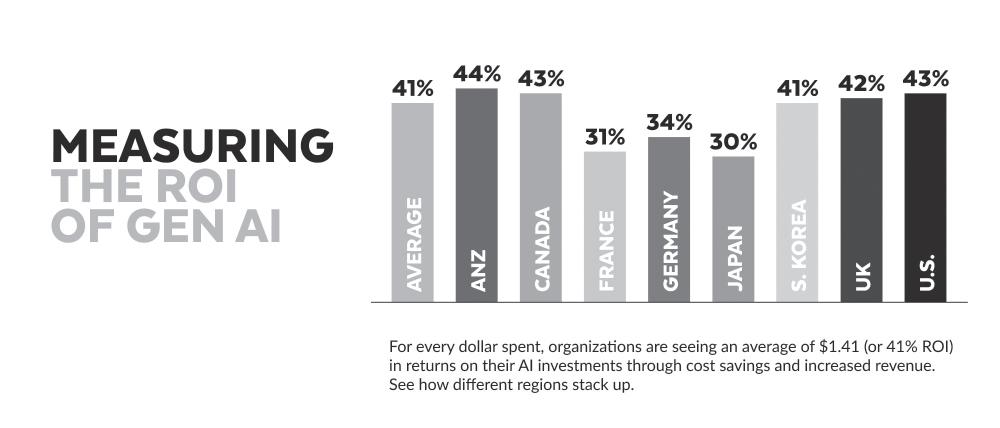
Associated Press
SNOWFLAKE, the AI
Data Cloud company, in collaboration with Enterprise Strategy Group, today released the “Radical ROI of Generative AI,” a global research report surveying 1,900 business and IT leaders across nine different countries — all of whom are actively using AI for one or more use cases. Of all respondents, 92% reported that their AI investments are already paying for themselves, and 98% plan to invest more on AI in 2025.
As AI adoption accelerates across global enterprises, a robust data foundation has emerged as the cornerstone of successful implementation, yet respondents are still grappling with how to make their data AI-ready.
Measuring the ROI of AI
“I’ve spent almost two decades of my career developing AI, and we’ve finally reached the tipping point where AI is creating real, tangible value for enterprises across the globe,” said Baris Gultekin, Head of AI, Snowflake. “With over 4,000 customers using Snowflake for AI and ML on a weekly basis, I routinely see the outsized impact these tools have in driving greater efficiency and productivity for teams, and democratizing data insights across entire organizations.”
Early AI investments are proving to be successful for the majority of enterprises, with 93% indicating that their AI initiatives have been very or mostly successful. In fact, two-thirds of respondents are already starting to quantify their generative AI ROI today, finding that for every dollar spent, they are seeing $1.41 in returns (or 41% ROI) through cost savings and increased revenue.
However, there are global nuances around where organizations are focusing their AI efforts that directly correlate to each country’s AI maturity, and their results in terms of driving ROI across regions: Australia and New Zealand (ANZ) respondents have seen a 44% return on their AI investments.
Compared to the global average, organizations in ANZ were more likely to cite enhancing customer satisfaction as a key goal for their AI initiatives (53% versus 43%), and less likely to prioritize internal-facing projects (47% versus 55%).
Canada respondents have seen a 43% return on their AI investments. Canadian organizations were more likely to say that they’re only pursuing initial AI use cases (45% versus 36%), suggesting that many are earlier in their AI adoption journeys than global counterparts.
France respondents have seen a 31% return on their AI investments. Compared to the global average, French companies are less likely to train or augment large language models (LLMs) with proprietary data using retrieval-augmented generation (RAG) (59% versus 71%), suggesting a lag in maturity for their AI strategies.
Germany respondents have seen a 34% return on their AI investments.
German organizations were more likely to report challenges with infrastructure, particularly in meeting storage and compute requirements for AI (69% versus 54%).
Japan respondents have seen a 30% return on their AI investments. Japanese organizations differed in their strategic goals for AI, being least likely to focus their AI efforts on customer service and support (30% versus 43%) and financial performance (18% versus 30%), but the most likely to harness AI to help cut costs (43% versus 32%).
South Korea respondents have seen a 41% return on their AI investments. South Korean businesses are employing mature AI use cases, reporting the highest use of open source models (79% versus 65%), and are more likely to train or augment models with RAG (82% versus 71%).
United Kingdom respondents have seen a 42% return on their AI investments. In terms of strategic goals, UK-based organizations were more likely to prioritize the value
AI brings to end users, with respondents beating the global average in citing both operational efficiency (57% versus 51%) and innovation (46% versus 40%) as primary business drivers.
United States respondents have seen a 43% return on their AI investments. American companies led in successful AI operationalization, with respondents more often than any other country to say that they’ve been “very successful” at operationalizing AI to achieve their business goals (52% versus 40%).
Despite almost all respondents reporting success with their AI initiatives to-date, many organizations are grappling with difficult decisions to build on the momentum. Amid a sea of opportunities to implement AI within their businesses, respondents reported challenges with identifying the most impactful use cases and increased pressure to make the right decisions — all while grappling with limited resources:
Too many use cases, too few resources: 71% of early adopters agree they have more potential use cases that they want to pursue than they can possibly fund.Decision-making blind spots: 54% agree that selecting the right use cases based on objective measures like cost, business impact, and the organization’s ability to execute is hard.Competitive pressure mounts: 71% acknowledge that selecting the wrong use cases will hurt their company’s market position. Job security concerns arise: 59% of respondents say that advocating for the wrong use cases could cost them their job.
Overcoming Data
Barriers to Maximize AI Effectiveness
Organizations are increasingly incorporating their proprietary data to maximize AI’s effectiveness, with 80% of respondents choosing to fine-tune models with their
own data. Despite this widespread recognition of data’s importance — with 71% of respondents acknowledging that effective model training and fine-tuning requires multi-terabytes of data — significant challenges persist in making this data AI-ready. With the majority struggling to make use of their most valuable asset, organizations claim that the following are the biggest data hurdles for driving AI success:
Breaking down data silos: 64% of early adopters say integrating data across sources is challenging today.Integrating governance guardrails: 59% say enforcing data governance is difficult.Measuring and monitoring data quality: 59% say measuring and monitoring data quality is difficult.Integrating data prep: 58% say making data AI-ready is a challenge. Efficiently scaling storage and compute: 54% say it’s difficult to meet storage capacity and computing power requirements.
There is a significant opportunity for businesses to overcome these challenges and unlock the full potential of their data for more accurate, relevant, and impactful AI outcomes with a unified data platform.
“The rapid pace of AI is only accelerating the need for organizations to consolidate all of their data in a well-governed fashion,” said Artin Avanes, Head of Core Data Platform, Snowflake. “Having an easy, connected, and trusted data platform like Snowflake is imperative not just for helping users see faster returns on their data investments, but it lays the foundation for users to easily scale their AI apps in a compliant and secure manner — without requiring specialized or hard to find technical skills. A managed, interoperable data platform provides seamless business continuity as global enterprises tap into their entire data estate to lead in the evolving AI landscape.”
plans to manufacture
chips in the US for the first time

NVIDIA announced Monday that it will produce its artificial intelligence super computers in the United States for the first time.
The tech giant said it has commissioned more than one million square feet of manufacturing space to build and test its specialized Blackwell chips in Arizona and AI supercomputers in Texas — part of an investment the company said will produce up to half a trillion dollars of AI infrastructure in the next four years.
“The engines of the world’s AI infrastructure are being built in the United States for the first time,”
Nvidia founder Jensen Huang said in a statement.
“Adding American manufacturing helps us better meet the incredible and growing demand for AI chips and supercomputers, strengthens our supply chain and boosts our resiliency.”
Nvidia’s announcement comes as the Trump administration has said that tariff exemptions on electronics like smartphones and laptops are only a temporary reprieve until officials develop a new tariff approach specific to the semiconductor industry.
White House officials, including President Donald Trump himself, spent Sunday downplaying the significance of exemptions that lessen but won’t eliminate the effect of U.S. tariffs on imports of popular consumer devices and their key components.
“They’re exempt from the reciprocal tariffs but they’re included in the semiconductor tariffs, which are coming in probably a month or two,” U.S. Commerce Secretary Howard Lutnick told ABC’s “This Week” on Sunday.
Nvidia said in a post on its website that it has started Blackwell production at Taiwan Semiconductor Manufacturing Co. chip plants in Phoenix. The Santa Clara, California-based chip company is also building supercomputer manufacturing plants in Texas — with Foxconn in Houston and Wistron in Dallas.
Nvidia’s AI super computers will serve as the engines for AI factories, “a new type of data center created for the sole purpose of processing artificial intelligence,” the company said, adding that manufacturing in the U.S. will create “hundreds of thousands of jobs and drive trillions of dollars in economic security over the coming decades.”
Mass production at both plants is expected to ramp up in the next 12-15 months, Nvidia said. The company also plans on partnering with Taiwan-based company SPIL and Amkor for “packaging and testing operations” in Arizona.
In a statement Monday, the White House called Nvidia’s move “the Trump Effect in action.”
Trump “has made U.S.-based chips manufacturing a priority as part of his relentless pursuit of an American manufacturing renaissance, and it’s paying off — with trillions of dollars in new investments secured in the tech sector alone,” the White House said.
Earlier this year, Trump announced a joint venture investing up to $500 billion for infrastructure tied to artificial intelligence by a new partnership formed by OpenAI, Oracle and SoftBank. The new entity, Stargate, was tasked with building out data centers and the electricity generation needed for the further development of the fast-evolving AI in Texas, according to the White House.
The initial investment is expected to be $100 billion and could reach five times that sum.


AS Sudan marks two years of civil war on Tuesday, atrocities and famine are only mounting in what the United Nations says is the world’s worst humanitarian crisis.
Last month, the Sudanese military secured a major victory by recapturing the
capital of Khartoum from its rival, the paramilitary Rapid Support Forces. But that has only moved the war into a new phase that could end up with a de facto partition of the country.
On Friday and Saturday, RSF fighters and their allies rampaged in two refugee camps in the western Darfur region, killing at least 300 people. The Zamzam and
Abu Shouk camps, which shelter some 700,000 Sudanese who fled their homes, have both been stricken with famine, and aid workers cannot reach them because of the fighting. Up to 400,000 people have fled the Zamzam camp in recent days, UN spokesman Stephane Dujarric said Tuesday. “Local sources are telling us that armed

groups have taken control of the camp and are restricting the movement of those remaining, especially young people.”
Half the population of 50 million faces hunger. The World Food Program has confirmed famine in 10 locations and says it could spread, putting millions in danger of starvation.
“This abominable conflict has continued for two years too long,” said Kashif Shafique, country director for Relief International Sudan, the last aid group still working in the Zamzam camp. Nine of its workers were killed in the RSF attack.
He said the world needs to press for a ceasefire. “Every moment we wait, more lives hang in the balance,” he said. “Humanity must prevail.”
Here is what is happening as the war enters its third year:
The war erupted on April 15, 2023, with pitched battles between the military and the RSF in the streets of Khartoum that quickly spread to other parts of the country.
It was the culmination of months of tension between the head of the military, Gen. Abdel-Fattah Burhan, and the RSF’s commander, Mohammed Hamdan Dagalo. The two were once allies in suppressing Sudan’s movement for democracy and civilian rule but turned on each other in a struggle for power.
The fighting has been brutal. Large parts of Khartoum have been wrecked. Nearly 13 million people have fled their homes, 4 million of them streaming into neighbouring countries. At least 20,000 people have been recorded killed, but the true toll is probably far higher.
Both sides have been accused of atrocities, and the RSF fighters have been notorious for attacking villages in Darfur, carrying out mass killings of civilians and rapes of women.
The military’s recapture of Khartoum in late March was a major symbolic victory. It allowed Burhan to return to the capital for the first time since the war started and declare a new government, boosting his standing.
But experts say the RSF has consolidated its hold on the areas it still controls — a vast stretch of western and southern Sudan, including the Darfur and Kordofan regions. The military holds much of the north, east and center.
“The reality on the ground already resembles a de facto partition,” said Federico
Donelli, an assistant professor of international relations at Università di Trieste in Italy.
Donelli said it’s possible the two sides could seek a ceasefire now. But more likely, he said, the military will keep trying to move on RSF-held territory.
Neither side appears able to defeat the other.
“Both parties are suffering from combat fatigue,” said Suliman Baldo, director of the Sudan Transparency and Policy Tracker. The RSF is weakened by internal fissures and “lacks political legitimacy within the country,” said Sharath Srinivasan, professor of international politics at Cambridge University.
But it has strong access to weapons and resources, bolstered by support from the United Arab Emirates, Chad, Uganda, Kenya, South Sudan and Ethiopia, he said.
“Without understanding the complex regional geopolitics of this war, it is easy to underplay the RSF’s resilience and ability to strike back,” said Srinivasan, author of “When Peace Kills Politics: International Intervention and Unending Wars in the Sudans.”
Hundreds of thousands of people trapped by the fighting face hunger and starvation. So far, the epicenter of famine has been in the North Darfur province and particularly the Zamzam camp. The RSF has been besieging the camp as it wages an offensive on El Fasher, the regional capital and the last main position of the military in the Darfur region.
Amna Suliman, a mother of four living in the camp, said people have resorted to eating grass and tree leaves.
“We have no choice,” she said in a recent phone interview. “We live in fear, with no communication, no food, and no hope.” Since famine was first declared in Zamzam in August, it has spread to other parts of the province and nearby South Kordofan province.
The WFP warned this week that 17 other locations will also soon fall into famine — including other parts of the Darfur region but also places in central and south Sudan — because aid workers cannot reach them.
“The situation is very dire,” said Adam Yao, deputy representative of the UN Food and Agricultural Agency in Sudan.
Already, at least 25 million people, more than half of the country’s population,
face acute hunger, including 638,000 who face catastrophic hunger, the most dire rating used by aid agencies, according to the WFP. Some 3.6 million children are acutely malnourished.
In other areas, the military’s capture of territory allowed aid groups to reach refugees and displaced people who have been largely cut off from aid for two years.
Sudan has been hit by multiple outbreaks of cholera, malaria and dengue in the past two years. The latest cholera outbreak in March killed about 100 people and sickened over 2,700 others in the White Nile province, according to the Health Ministry.
The economy has been decimated, with a 40% drop in GDP, according to the United Nations Development Program. Full-time employment has been halved and almost 20% of urban households reported that they have no income at all, it said.
At the same time, UN agencies and aid groups have faced funding cuts from major donors, including the United States. Only 6.3% of the $4.2 billion required for humanitarian assistance in Sudan this year has been received as of March, said Clementine Nkweta-Salami, the UN humanitarian coordinator in Sudan.
“The reductions come at a time when the needs in Sudan have never been greater, with more than half of the population hungry and famine spreading,” she said.
About 400,000 people managed to return to their hometowns in areas retaken by the military around Khartoum and nearby Gezira province, according to the UN migration agency.
Many found their homes destroyed and looted. They depend largely on local charities for food.
Abdel-Raham Tajel-Ser, a father of three children, returned in February to his neighbourhood in Khartoum’s twin city of Omdurman after 22 months of displacement.
The 46-year-old civil servant said he found his house, which had been occupied by the RSF, severely damaged and looted.
“It was a dream,” he said of his return, adding that his life in the largely destroyed neighbourhood with almost no electricity or communications is “much better than living as a refugee or a displaced person.”


